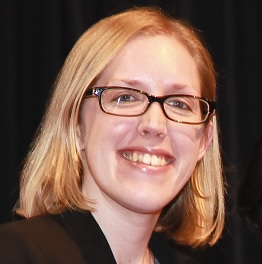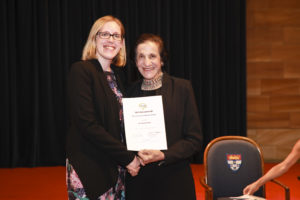
PROJECT SUMMARY:
Multiple sclerosis (MS) is an autoimmune neuroinflammatory disorder of the central nervous system, characterized by significant disability. Chronic inflammatory demyelinating polyneuropathy (CIDP) is a related autoimmune neuroinflammatory disorder which affects the peripheral nervous system – leading to progressive difficulties with walking and sensation. Both conditions are costly in terms of healthcare costs and burden on patients. However, we still do not fully understand the risk factors underlying the development of these disorders and need to develop better markers of disease activity to direct appropriate treatment.
Vitamin D is important in modulating the immune system. Reduced vitamin D levels are associated with autoimmune conditions such as MS and type I diabetes. Sunlight and the distance from the equator (latitude) are important in determining vitamin D levels as sun exposure is required to produce vitamin D. Accordingly, the prevalence of autoimmune disorders is also associated with latitude. In Australia, MS is seven times more common in Tasmania (higher latitude) than in Queensland (lower latitude). Importantly, in patients with MS, vitamin D levels are also associated with disease activity and disability. However these factors have never been investigated in CIDP.
This project will examine the rates of CIDP at different latitudes in Australia to determine if prevalence is associated with latitude. In order to determine if vitamin D levels are associated with disability in CIDP, we will measure vitamin D levels in CIDP patients and compare with functional ability. We have developed a comprehensive series of tests to examine function in patients with CIDP, including novel tests of nerve function. We will also compare with a group of MS patients to determine the differences in vitamin D levels across the spectrum. The overall aim is to develop a marker of disease activity and to examine the potential for a trial of vitamin D supplementation.
RESEARCH OUTCOME:
To determine rates of immune-mediated peripheral neuropathies at different latitudes– we identified all patients with CIDP and MMN in North Queensland (Townsville and Cairns regions – lower latitude) and compared to Tasmania (higher latitude). We used multiple methods to identify patients including survey of neurologists, search of hospital databases and search of statewide data collections.
We identified that there was no difference across regions by latitude (CIDP TAS: 4.7 per 100,000; Nth QLD: 5.3 per 100,000 population). However there was a trend towards a younger age of disease onset in Tasmania at higher latitude. The prevalence of MMN was high compared to international cohorts in both regions (TAS: 1.2 per 100,000; North QLD: 1.5 per 100,000 population). In addition, we measured vitamin D levels in a cohort of immune-mediated neuropathy patients to compare with their functional ability. While the relationship between disability and vitamin D is complex, we found that vitamin D levels were significantly associated with overall disability status in CIDP patients with reduced functional status. This project has underscored the need for national registry of immune-mediated neuropathies to be established in order to facilitate future research to ensure appropriate treatment of patients and to identify markers of disease activity.
Dr Park receiving her award from Her Excellency Professor Marie Bashir AO CVO at 2015 Award Ceremony




 The Brain Foundation is the largest, independent funder of brain and spinal injury research in Australia. We believe research is the pathway to recovery.
The Brain Foundation is the largest, independent funder of brain and spinal injury research in Australia. We believe research is the pathway to recovery.